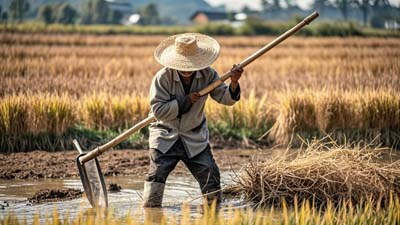汉字(hànzì): 男(nán) a male

拼音(pīnyīn) pinyin: nán
笔画(bĭhuà) number of strokes: 7
部首(bùshŏu) radical: 田
结构(jiégòu) structure: top and bottom structure
字源(zìyuán) etymology: the top part 田(tián) refers to field and the bottom part 力(lì) means strength. In ancient times, men must labor in the field, so the character 男 indicates 田里的劳力(tiánlĭ de láolì) labor in the fields.
笔顺(bĭshùn) stroke order:

常用词语(chángyòng cíyŭ) Commonly used words
男女老少(nánnŭlǎoshào) men and women, old and young
男孩(nánhái) boy
男人(nánrén) man∕husband
男生(nánshēng) school boy
男子汉(nánzĭhàn) a male that is manly
男厕所(nán cèsuŏ) toilet for men
liúxíng cíyŭ) Popular words related to 男(nán)
肌肉男(jīròu nán): muscular men
凤凰男(fènghuáng nán): men who come from rural area, but later go to college and live and work in urban area after graduation
便当男(biàndang nán): single men who bring lunch to work
食草男(shícǎo nán): vegetarian men are moderate and friendly, but lacking initiative (on marriage, etc.)
三高男(sān gāo nán): men who are tall and highly educated with high income
General Chinese (Beginner Level)
General Chinese (Intermediate Level)



